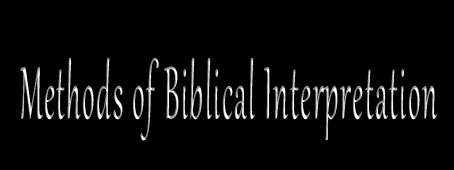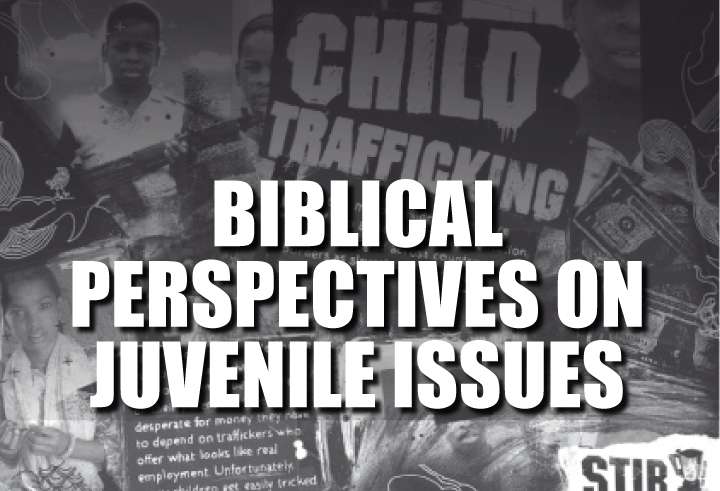

The Doctrine of Separation
Dr. Saju Joseph
The doctrine of separation is a belief that the members of a Christian church should be separate from “the world” and not have association with those who are “of the world”. There are many scriptures in both the Old Testament and New Testament of the Bible that provide the basis for this doctrine. The following verses form a basis for this doctrine of the church.
“Can two walk together except they be agreed?” (Amos 3:3) “Have no fellowship with the unfruitful works of darkness…”(Ephesians 5:11). “Be ye not unequally yoked together with unbelievers...” (II Corinthians 6:14). “I am coming to you now, but I say these things while I am still in the world, so that they may have the full measure of my joy within them. I have given them your word and the world has hated them, for they are not of the world any more than I am of the world. My prayer is not that you take them out of the world but that you protect them from the evil one. They are not of the world, even as I am not of it.” (John 17:13-16)
Different Christian groups vary widely in what to them constitutes separation. For example, Pentecostals want to live in a way that is distinct from the typical lifestyle of the world. Believers in second degree separation believe that Christians who are tied up with “the world” are themselves guilty of apostasy for their failure to adequately separate.
Practices and areas that should be separated under the more strict interpretations of the doctrine of separation include Mental Life, Physical Life, Social Life and Spiritual Life.
Mental Life
1. Thought life (Proverbs 23:7).
Separation in the thought life is particularly important because the Christian possesses two natures: two dispositions which are continually striving with each other for the control of the believer (Galatians 5:17). If the Christian is to “walk in the Spirit,” he must distinguish the desires of the Spirit. To make the differentiation easy, Paul has given the believer an objective criterion for distinguishing the desires of the flesh from the desires of the Spirit in the form of a list of examples (see Galatians 5:19-23). By meditating upon this list, the Christian will be able to readily discern between the desires of his old nature and those of the Holy Spirit and will, by obeying His desires, be controlled by the Spirit.
2. Reading and other media
The realization that the Christian still possesses his old nature, as a kind of caged-up wild beast looking for a way to get out, ought to make him careful of the kind of “food for thought” he allows to come in through reading and other media. The Christian must distinguish between that which feeds the flesh and that which nourishes his new nature in the things which he allows to enter through the eyes and ears. David failed to turn his head at the first glimpse of Bathsheba and paid the consequences. Split-second discernment and reaction is becoming imperative for the Christian living in a world where tempting dress models are common.
3. Attitudes
A Christian must be extremely discriminatory in the choice of attitudes which he manifests. He must be as set apart from wrong attitudes as he is from wrong actions. As the Apostle Paul stated: “Let all bitterness, and wrath, and anger, and clamor, and evil speaking, be put away from you, with all malice; and be ye kind one to another, tenderhearted, forgiving one another, even as God for Christ’s sake, hath forgiven you” (Eph. 4:31-32).
Physical Life
1. Dress
The Christian’s outward appearance is a matter of concern to the Apostle Paul, particularly in the case of Christian women for whom he lays down some guidelines: “In like manner, that women adorn themselves in modest apparel” (1 Timothy 2:9). Modesty in dress, especially today, requires careful discrimination. The Christian is not to be conformed to the world’s sensuous standards and must set aside the majority of the fashions of today. At the same time, the Christian ought to display good taste in the clothing he wears and not draw attention to himself with extremism in either direction.
2. Entertainment
While proper recreation and exercise are necessary for the Christian, the Christian must use discernment in the activities in which he engages in leisure time. The Christian is to be separate from “worldly amusements and unclean habits which defile mind and body.”
3. Use of Tongue
Discrimination is also the order in the use of the Christian’s tongue. Every thought which comes to mind is not to be broadcast by the child of God. Paul makes this clear: “ Let no corrupt communication proceed out of your mouth, but that which is good to the use of edifying, that it may minister grace to the hearers (Ephesians 4:29).
The Christian is thus to be drastically selective in his choice of words. Not only is he to separate out all vulgarity from his speech, but positively, his words are to be a blessing to the hearers.
Social Life
1. Friendships
The Word of God makes it clear that a believer is to be careful in the choice of his close companions (see Psalm 119:63). Solomon saw that, “He that walks with wise men shall be wise, but a companion of fools shall be destroyed” (Proverbs 13:20). The Apostle Paul likewise noted, “Be not deceived: Evil companionships corrupt good morals” (1 Corinthians 15:33). Thus, while the Christian is to be cordial towards all, especially towards those of like precious faith, he, nevertheless, is to be selective in his choice of close companionships. The best way to do this, of course, is to have the right interests and to allow our interests to govern our close friendships. “Be not unequally yoked with unbelievers” (2 Corinthians 6:14).
2. Career
The Christian should beware of making partnerships with unbelievers. Moreover, the Christian businessman must be discriminative in his business methods. The dishonest practices which are a matter of course in many firms are to be put away from the Christian in the business world. Dr. C. F. Yoder (God’s Means of Grace, p. 468) has stated, “In occupation the Christian should remember that God is his senior partner.”
Spiritual Life
1. The personal devotional life
In order for the Levitical priests to enter into the Holy of Holies, they themselves had to be holy. The Christian, then, ought to be discriminative in his own devotional activities. This would apply, for example, to the Bible version which he reads. Peter says, “Desire the sincere (pure) milk of the word . . . (1 Peter 2:2). A paraphrase may be good for occasional comparison, but it ought not to be the daily food for the Christian’s soul. The prayer life, too, ought to be purged from all that is unfit for God’s presence. The Christian, especially the young Christian, ought to make a distinction between talking to the Lord of Hosts and “shooting the breeze” with his dormitory roommate.
2. Fellowship with other Christians
The joy of fellowship with other true believers is indeed a blessed assurance of the Christian’s salvation. Apostle John says, “We know we have passed from death unto life, because we love the brethren” (1 John 3:14). Nevertheless, the Word of God plainly teaches that there are times when the obedient believer must purposefully part company with disobedient fellow Christians. This is true in the case of a brother who is living in sin. As Paul wrote to the Corinthians: “I have written unto you not to keep company, if any man that is called a brother be a fornicator, or covetous, or an idolater, or a slanderer, or a drunkard, or a swindler; with such a one, no, not to eat (1 Corinthians 5:11).
This is also true, however, in the case of a brother who teaches doctrinal error or who fails to obey the truth: “ Now we command you, brothers, in the name of our Lord Jesus Christ, that ye withdraw yourselves from every brother that walks disorderly, and not after the tradition which he received of us . . . and if any man obey not our word by this epistle, note that man, and have no company with him, that he may be ashamed (2 Thessalonians 3:6,14).
2. The Church
If a Christian is to be separated from individuals who hold to and teach doctrinal error, he most certainly is to be separated from entire assemblies with the same problem. Withdrawing from a much loved church which has fallen into error is not easy, but it may remedy the problem. In any event, it is unethical to remain in and teach a doctrinal position contrary to that held by the assembly. The Christian ought to withdraw in such a case, and pray that God will open the eyes of the congregation.
God says, “And have no fellowship with the unfruitful works of darkness, but rather reprove them. For it is a shame even to speak of those things which are done of them in secret. But all things that are reproved are made manifest by the light: for whatsoever doth make manifest is light. Wherefore he saith, Awake thou that sleepest, and arise from the dead, and Christ shall give thee light. See then that ye walk circumspectly, not as fools, but as wise, Redeeming the time, because the days are evil. Wherefore be ye not unwise, but understanding what the will of the Lord is. And be not drunk with wine, wherein is excess; but be filled with the Spirit” (Ephesians 5:11-18).






















